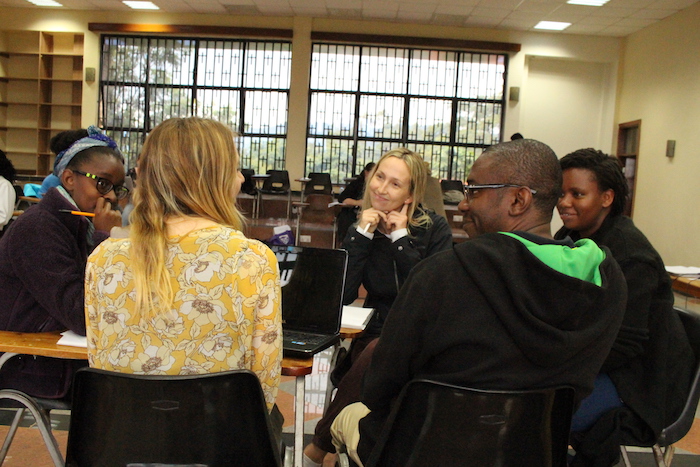SnapShot Blog - Disruptive Innovation: Translating Knowledge into Action
Written by: Stephanie Huff
The Global Minds Fellowship Program (GMFP) offers many opportunities for student’s growth and development, including mindfulness and reflexivity. Most interesting to me were the streams of learning rooted in social innovation models, which highlight the processes, conditions and tools to create space for ‘disruptive innovation’.
As a PhD student engaged in critical social theory, I was immediately drawn to the notion of disruptive innovation. According to Clayton Christensen who coined the term, disruptive innovation refers to a business strategy which radically changes existing markets by creating new ones altogether (Christensen, 2018). From a global health perspective, I inferred that disruptive innovation related more to destabilizing the multiple driving factors and systems of power influencing and perpetuating global inequities in order to catalyze social change.
But how exactly? It seemed to me that some of the biggest stakeholders in the global health and international development sectors had repeatedly acknowledged and debated over pressing global inequities, but no one could succinctly answer how we as a global health community can move from dialogue to action. The social innovation lab model offers some intriguing insights to this question (Westley and Laban, 2015).
A Social Innovation Lab (SIL) strategically brings people together at a time when persistent problems, disruptive changes or a crisis demand:
- Sense-making and motivation to act (what is happening and why?);
- Identification of emerging patterns, programs, initiatives, and ideas that could transform the problem; and,
- Identification of the opportunities to shape or influence new partnerships, resource flows and protocols that could support such transformation.
The key with the SIL model is that it encompasses multiple dynamics (social, experimental and systemic) to radically re-think a problem in order to propose an innovative solution.
We learned about this model first hand in the GMFP Summer Institute, where our interdisciplinary teams collaborated on a pervasive and complex problem relating to mental illness within the local community of Machakos, Kenya. Through interviewing local individuals with mental illness and visiting mental health sites, we were able to get a better understanding of the existing problem in context. Through iteratively re-visiting the problem and the multiple systems perpetuating it, we were able to identify its root, which led to developing relevant strategies to tackle the problem at multiple levels. Ultimately, our team realized we needed to work collaboratively with local individuals with mental illness and harness the power of their personal narratives to tap into the roots of social stigma.

This experience has opened my eyes to the power of social innovation and the need for global health strategies to not only be ‘disruptive’ but also sustainable and meaningful to communities. I realized that ‘knowledge translation’ is not always about implementing knowledge, but rather action and change require a collaborative approach that respects and shares the knowledge and expertise of those who actually experience the problem or issue first-hand.
References:
Christensen (2018). Key concepts. Retrieved from http://www.claytonchristensen.com/
Westley & Laban (2015). Social Innovation Lab Guide. Retrieved from https://bit.ly/1KjgOcN
About Stephanie:
Stephanie Huff is a PhD candidate in occupational science, within the faculty of Health and Rehabilitation Sciences at Western University. Her critical decolonizing ethnographic research explores gender inequities within the context of Tanzanian women’s everyday activities. Her interest in gender rights within low income countries was solidified while participating in the 2017 Global MINDS Summer Institute, where she became aware of the intersecting layers of inequities women with psychosocial disabilities in Kenya experience. After completing her doctorate degree in 2019, Stephanie wishes to use social innovation strategies to pursue global health work that catalyzes collaborative transformation within low income countries.
About the GMFP SnapShot Blog:
Through the SnapShot Blog, past and current Global MINDS students and Fellows will share insightful and authentic reflections regarding their experiences with the program and their progress of implementing and evaluation their solutions.








